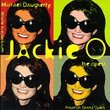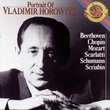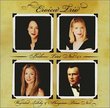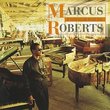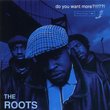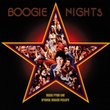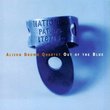| All Artists: Richard Wagner, Wolfgang Windgassen, Birgit Nilsson, Dietrich Fischer-Dieskau, Gottlob Frick, Dame Gwyneth Jones, Christa Ludwig, Gustav Neidlinger, Sir Georg Solti Title: Gotterdammerung Members Wishing: 0 Total Copies: 0 Label: Decca Release Date: 10/14/1997 Album Type: Box set Genre: Classical Styles: Opera & Classical Vocal, Historical Periods, Modern, 20th, & 21st Century Number of Discs: 4 SwapaCD Credits: 4 UPC: 028945556925 |
Search - Richard Wagner, Wolfgang Windgassen, Birgit Nilsson :: Gotterdammerung
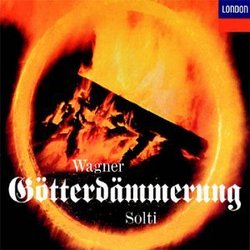 | Richard Wagner, Wolfgang Windgassen, Birgit Nilsson Gotterdammerung Genre: Classical
No Description Available No Track Information Available Media Type: CD Artist: WAGNER,R. Title: GOTTERDAMMERUNG-COMP OPERA Street Release Date: 10/14/1997 |
Larger Image |
CD DetailsSynopsis
Product Description No Description Available No Track Information Available Media Type: CD Artist: WAGNER,R. Title: GOTTERDAMMERUNG-COMP OPERA Street Release Date: 10/14/1997 Similar CDsSimilarly Requested CDs
|
CD ReviewsA powerful performance of Wagner's "powerful" opera wagnerite | Boynton Beach, FL USA | 11/17/2004 (5 out of 5 stars) "As the 3rd act (and finale) of the Ring cycle (with Walkure being act 1, Siegfried as act 2, and Rheingold as a prelude), it contains some of the most powerful music by Wagner, and needless to say, some of the most powerful music. What is meant by powerful? Well, it is literal: This opera is full of power, in both its drama and its music. As such, it requires powerful singing, a powerful hand to control the music, and musicianship that can rise to the level needed to bring the impact of the power of this work to its fullest. The Solti Gotterdammerung does precisely that. Gotterdammerung also contains some basic orchestral standards that are unsurpassed in this recording: 1. Dawn and Siegfried's Journey to the Rhine--The only comparable version I've heard of this piece is Furtwangler's, and his "Dawn" is just amazing! Solti comes close, which is quite good. Furthermore, the pace and power of the Rhine music is just right. The brass (often dominant) and the strings (with their sweep) are intricately balanced. The net effect is extremely thrilling. 2. Siegfried's March--A difficult piece to conduct right. The version captured here is actually at a faster pace than Solti wanted, but Culshaw wanted the music to flow strongly. I agree with the assessment, and as a result, we have a fantastic interpretation of a potentially delicate piece. Too slow, and the effect is lost; too fast, and there is a lack of the severity and solemnity of the scene. 3. Immolation Scene--This is where "the fat lady sings." Many of the leitmotifs of the opera come together in massive interweaving of thrilling music. It is sometimes difficult music to listen to in the sense that there is considerable amount of chromaticism employed. The so-called "redemption" motif is underneath Brunnhilde's last words to her love for Siegfried, but its harmonic progression is unsettled, even agonizing. The same goes for the heavy brass used in the actual twilight section after the immolation, where the "Valhalla" motif rises ever higher in each bar, but the chords denote tension. Nonetheless, this is among the most powerful pieces of music ever written, and it could be argued that there was just no other way to achieve the incredible effect of a tragic ending, followed by the hope of the redemption motif. While these pieces are very powerful in their own right, there is very little "filler" in this opera. There are many parts that are thrilling and powerful in their own right. But to pull of the entire opera and all its glorious and tragic moments, many things must work together to achieve the pinnacle. This Decca set captures all of those, namely: Solti's dynamic directing, the VPO's amazing orchestral performance, and the singers' vocals all rise to the occasion. An added benefit is John Culshaw's vision actually bringing this work to its fullest fruition. The result is an amazing effort overall. Although I consider the Decca Siegfried the closest to perfection (see my review there), this is a very close second. It is truly a work that can be savored at different levels." Breathtaking 07/04/2000 (5 out of 5 stars) "Lucky enough to hear the Met's recent "Ring" production, I found this recording absolutely breathtaking. With Solti no longer with us, it is sometimes easy to forget the energy he brought to every piece of music he performed. No more so than with Wagner and "Gotterdammerung." He gives the music so much power and bite that it feels like a living thing. And the remastered recording is simply superb. The incomparable Nilsson's voice floats over the entire endeavor with a musicality that is remarkable given the vocal demands of the opera. For me, though, Windgassen's Siegfried stole the show. It feels at times that he is laughing at Wagner's vocal pyrotechnics. This is truly a recording for the ages." The crowning glory of Solti's Rng, and getting better with a Santa Fe Listener | Santa Fe, NM USA | 09/28/2005 (5 out of 5 stars) "I remember in the Sixties when this Gotterdammerung came out and was greeted with lavish praise for its dramatic power, the impact of the sound, the incomparable Brunnhilde of Nilsson, and the thrust of Solti's conducting. In every way it was the crowning glory of his entire Ring cycle (though not the last installment to be recorded.) After a decade of mostly indifferent playing, the Vienna Phil. also emerged into its real glroy.
After a gritty, nasty ADRM remastering in the mid-Eighties, Decca has brought out this newly remastered digital version that sounds very good, if not quite up to the original LPs in terms of naturalness and "air" around the singers. It was generally felt at the time that Solti's Gotterdammerung would never be surpassed, and so it has proved. Karajan's competing cycle from Berlin culminated in a decent Gotterdammerung, but the Siegfried was weak, even compared to the aging but skillful Windgassen, and Helga Dernesch, though a fine dramatic soprano, couldn't compete with Nilsson. So this is it, still the only Gotterdmmerung with world-class casting and magnificent stduio sound. There are days when I curse Solti for his brutality on the podium, but on the whole I remain very grateful to everyone involved. P.S. (Jan. 2008) With the appearance of a live Bayreuth Gotterdammerung on the Testament label, Solti's set received its first serious competition in the modern era. I thought it might be useful to offer a buyer's comparison between the two rivals. I was prepared not to find this Gotterdammerung superior to, or even equal to, the preceding Siegfried from the same source, but one listen told me that all is well. Solti's Gotterdammerung is one of the recordings of the century (I read one poll where it was voted THE recording of the century). Yet for overall dramatic effect, Keliberth also leads an inspiring performance. Since Testament is asking a dear price for this historic set, it might be worthwhile to compare the two rivals. Solti: The overwhelming element here has always been the Vienna Phil, recorded in sumptuous grandeur by Decca. For sweep and epic proportion, no one has come close to matching them. The next great thrill comes from Nilsson, a Brunnhilde of incomparable power and gleaming penetration in hre voice. Solti gives us his best effort in Wagner, and among the supporting roles the Waltraute (Christa Ludwig), Gunther (Fischer-Dieskau), Alberich (Neidlinger) and Hagen (Frick) cannot be faulted. Windgassen's voice had become worn and leathery over the years, and his aging Siegfried, although highly experiened and musical, isn't a pleasure to listen to for beauty of voice or youthfulness. (It sounds considerably more taxed, however, in the live Bayreuth set under Bohm on Philips.) It must be remembered that the stereo era hadn't seen a complete Gotterdammerung before Solti's pioneering effort, which stunned the classical music world in the early Sixties. After four decades, it remains undiminished and sells for reduced price is various reissues. One should seek out the latest remastering, since the original ADRM version from the early Eighties sounds thin and shrill compared to the original LPs. Keilberth: Decca also recorded this 1955 live Gotterdammerung, which would be the standard to this day if they hadn't rejected it and moved on to record Solti seven years later. The decision made sense at the time. Although the sonics are fine for a live performance, we hear some audience and stage noise, and the occasional fluff in the Bayreuth orchestra, which in any event isn't the equal of the Vienna Phil. by a long stretch. (Test Siegfried's Rhine Journey with its blatty brass, distant horn, and thin, scambling strings.) Keilberth does one of his best jobs coducting, but he is proficient and experienced rather than inspired. At moments he manages to excel himself, as in the riveting Calling of the Vassals, a hair-raaising episode with chorus and orchestra in full cry. Keilberth has one good trait that the hard-driving Solti lacks, a flexible, expressive beat. I especially liked the opening scene of the opera with the three Norns, which he keeps from dawdling. But at times Keilberth is too anxious to move forward, and the great set pieces of the Rhine Journey, Funeral March, and Immolation Scene lack the grandeur and technical polish of studio recordings. In the cast the standout is Astrid Varnay as Brunnhilde, who sings with passion and commitment, and whose voice, although not conventionally beautiful, is womanly yet heroic and gleaming enough to encompass the role (she doesn't get overly tired by the end and remains resplendent in the Immolation Scene). Windgassen is nearly as good--he and Varnay were frequently paird and had made duet recordings of Wagner for DG, newly reissued. His voice was fresh in 1955, and he shows considerable stamina during the Act 1 love duet. In the end Windgassen was only an almost-Heldentenor, but we haven't seen his like as Siegfried since, so I can't complain too much about his unlovely timbre. The supporting cast is nearly as strong as for Solti, with Neidlinger repeating his signature Alberich. Decca's microhones capture the voices onstage quite realistically and with minimal fade-out due to stage movements. Overall, Keilberth's interpreatation goes for momentum and propulsion, which is fine over such a long evening, while Solti gives us richness, epic sweep, and the incomparable beauty of the VPO. I am not aobut to make recommendations between the two sets. Many of us who love Gotterdammerung have owned the Solti forever, so it's wonderful to get a second bite of the apple. We'll own both and be greateful." |

 Track Listings (13) - Disc #1
Track Listings (13) - Disc #1